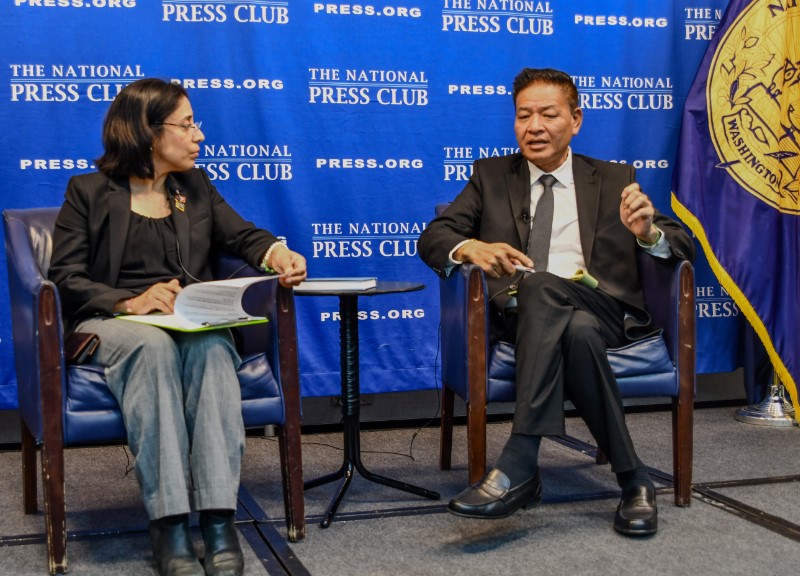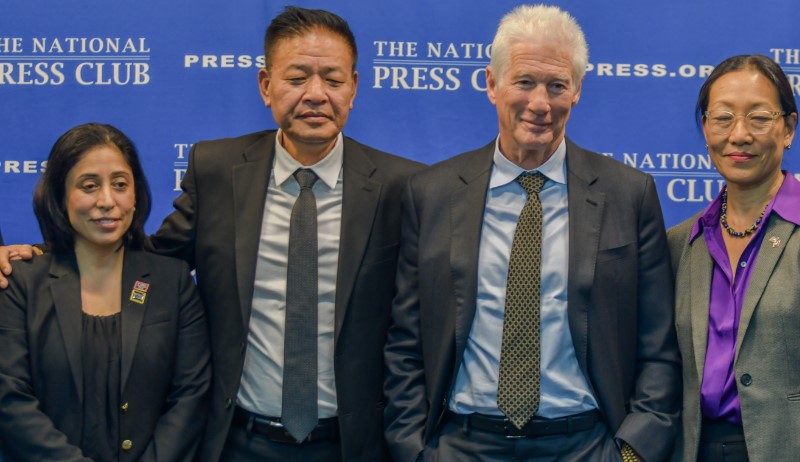Tibetan leader compares Chinese government to East Germany’s Stasi
China is “striking at the very root” of Tibetan culture, Sikyong Penpa Tsering, the democratically elected leader of Tibet’s government-in-exile said at an Oct. 18 National Press Club Headliners Newsmaker event attended by actor Richard Gere.
“China rules Tibet with an iron hand,” Tsering, who has held the office of sikyong (or political leader) since 2021, told a packed room that included Gere, a long-time supporter of Tibetan independence.

Tsering accused Chinese Communist authorities of phasing out Tibetan language programs in local schools, changing the names of small towns to create Chinese influence and placing increased restrictions on Tibetan Buddhist clergy.
Through these changes, China is “striking at the very root” of Tibetan identity, he said.
Asked by a member of the audience what his biggest concern is regarding Tibet’s future, Tsering responded, “That our identity will be completely exterminated.”
He contended that from 2009 to last year, 157 Tibetans have committed self-immolation due to the oppression they face in their land.
“It’s not as if Tibetans can’t kill Chinese people, but they burn themselves to death, hoping against hope that the Chinese government will pay some attention to their plight or hoping against hope that the international community will come to their rescue,” he said. “The freedom that the free world takes for granted does not exist in Tibet.”
He spoke of Tibet’s rich cultural heritage, referring to its reputation as “the root of the world” and citing its repository of ancient Indian Buddhist wisdom. But he added: “Religious freedom does not exist.”
Tibetans are afraid to express their opinions due to increased Chinese government surveillance within their communities, Tsering said.
“There is an atmosphere of fear. You can’t trust anybody,” he said, noting that many people fear informers and compared Tibet’s situation to Stasi surveillance in former East Germany.

Tsering was in Washington to rally support for the advance of the Promoting a Resolution to the Tibet-China Conflict Act, also known as the Resolve Tibet Act, legislation that would recognize a state of existing conflict between China and Tibet and boost U.S. support for a peaceful resolution.
“Unfortunately there is not much focus on nonviolent movements,” he said, stressing that the Tibetan government-in-exile pursues a Buddhism-based approach called the Middle Way to achieve peaceful resolutions to conflict. He urged media to provide more coverage of nonviolent movements to promote more peace in the world.
Gere responded with enthusiastic applause to these words in a reaction echoed by the rest of the audience.
Tsering thanked the Club for the opportunity to raise awareness about Tibet’s situation in his address. Upon being presented an NPC mug as a gift, Tsering accepted it as “a symbol of freedom” from the United States.
